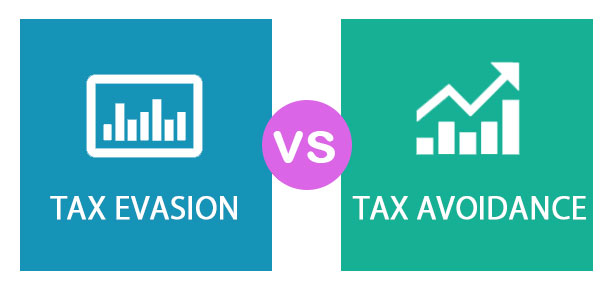The Role of Auditing and Internal Controls
 The Role of Auditing and Internal Controls
The Role of Auditing and Internal Controls
What is Auditing?
Auditing is a systematic process of examination and evaluation conducted by independent professionals to verify the accuracy, reliability, and completeness of financial information, transactions, systems, and processes within an organization. The primary objective of auditing is to provide stakeholders, including shareholders, investors, creditors, and regulatory bodies, with assurance regarding the integrity of financial reporting and adherence to relevant laws, regulations, and accounting standards.
Here are some common types of auditing:
1. Financial Audit: This is the most traditional type of audit, focusing on the financial statements of an organization to ensure they are accurate, complete, and compliant with relevant accounting standards and regulations.
2. Internal Audit: Conducted by an organization’s internal audit department or an outsourced firm, internal audits evaluate internal controls, risk management processes, and operational efficiency to provide assurance to management and the board of directors.
3. External Audit: External audits are performed by independent certified public accountants (CPAs) or audit firms to provide an objective assessment of an organization’s financial statements, usually for shareholders, regulators, or creditors.
4. Tax Audit: Tax audits are conducted by tax authorities to verify the accuracy of tax returns filed by individuals or organizations and ensure compliance with tax laws and regulations.
5. Operational Audit: Operational audits assess the efficiency and effectiveness of an organization’s operations, processes, and procedures, with the aim of identifying opportunities for improvement and cost savings.
Each type of audit serves a specific purpose and provides valuable insights to stakeholders, helping ensure accountability, transparency, and the integrity of financial and operational processes.
What is Internal Control in Auditing?
Internal control in auditing refers to the system of policies, procedures, and processes implemented by an organization to safeguard assets, ensure the accuracy of financial reporting, promote operational efficiency, and ensure compliance with laws and regulations.
Key components of internal control in auditing include:
- Control Environment: This encompasses the tone set by management regarding the importance of internal control and ethical behavior within the organization. It includes factors such as management’s integrity, ethical values, and commitment to competence.
- Risk Assessment: Internal controls should be designed to identify, assess, and mitigate risks that could prevent the organization from achieving its objectives. This involves understanding the internal and external factors that may impact the organization’s operations and financial reporting.
- Control Activities: These are the specific policies and procedures implemented by management to achieve objectives and mitigate risks. Control activities may include segregation of duties, authorization and approval processes, physical controls over assets, and IT controls.
- Information and Communication: Effective internal control systems rely on timely and accurate information to support decision-making and monitoring activities.
- Monitoring: Internal controls should be monitored regularly to assess their effectiveness and identify areas for improvement. This may involve ongoing monitoring activities performed by management and periodic evaluations conducted by internal audit or external parties.
The Essence of Auditing:
At its core, auditing embodies a systematic examination and evaluation of an organization’s financial records, processes, and operations. It serves the critical function of providing stakeholders, including investors, regulators, and management, with an independent and objective assessment of the entity’s financial health and adherence to prescribed standards and regulations.
Auditors, armed with expertise and diligence, delve deep into the financial intricacies, scrutinizing transactions, assessing internal controls, and identifying potential areas of concern. Through this rigorous process, auditing not only ensures the accuracy and reliability of financial reporting but also unveils operational inefficiencies and opportunities for improvement.
The Crucial Role of Internal Controls:
Internal controls serve as the scaffolding upon which organizational governance and accountability are erected. These encompass a comprehensive set of policies, procedures, and mechanisms designed to safeguard assets, promote operational efficiency, and ensure compliance with laws and regulations.
Effective internal controls are tailored to the specific needs and risks faced by an organization. They encompass preventive measures, detective controls, and corrective actions, creating layers of defense against fraud, errors, and mismanagement. From segregation of duties to regular reconciliations, internal controls foster transparency, accountability, and trust, instilling confidence among stakeholders.
The Symbiotic Relationship:
Auditing and internal controls form a symbiotic relationship, each reinforcing the efficacy and reliability of the other. Auditors rely on the strength of internal controls to gauge the integrity of financial information and the effectiveness of risk management practices. This partnership extends beyond mere compliance, fostering a culture of continuous improvement and accountability within organizations. By identifying weaknesses and inefficiencies, auditing and internal controls catalyze process enhancements, resource optimization, and strategic alignment, driving sustainable growth and resilience in an ever-evolving business landscape.
Navigating Challenges and Embracing Innovation:
While auditing and internal controls serve as stalwarts of organizational governance, they are not immune to challenges and disruptions. The rapid pace of technological advancements, evolving regulatory landscapes, and the increasing complexity of business transactions necessitate a proactive approach to adaptability and innovation.
Embracing data analytics, artificial intelligence, and automation can revolutionize the auditing process, enhancing its efficiency, accuracy, and predictive capabilities. Similarly, leveraging technology-driven solutions can bolster internal controls, enabling real-time monitoring, risk assessment, and response mechanisms.
Conclusion:
In the labyrinthine landscape of modern business, auditing and internal controls stand as sentinels of accountability, integrity, and resilience. By fostering transparency, mitigating risks, and enhancing operational efficiency, they lay the foundation for sustainable growth and stakeholder confidence. As organizations navigate the complexities of the global marketplace, the symbiotic relationship between auditing and internal controls becomes increasingly indispensable.
For more enquiry on the Role of Auditing and Internal Controls, kindly contact us at SOW Professional Services Ltd.
Website: www.sowprofessional.com
Phone: 07038254989
WhatsApp: https://wa.me/2348152451523



